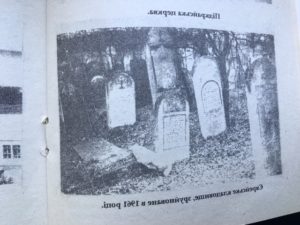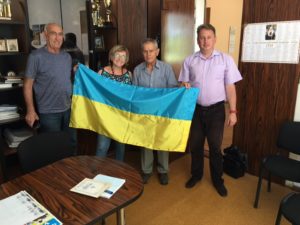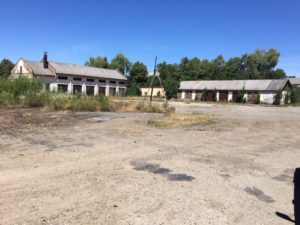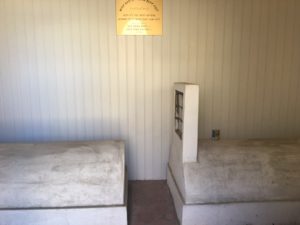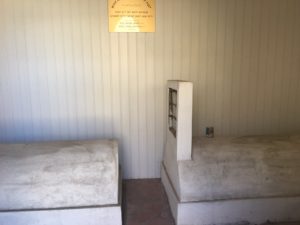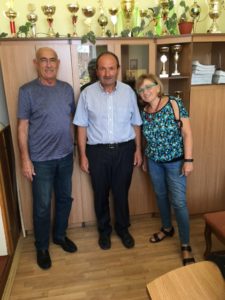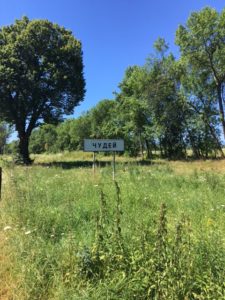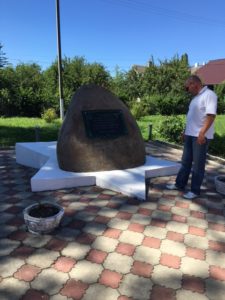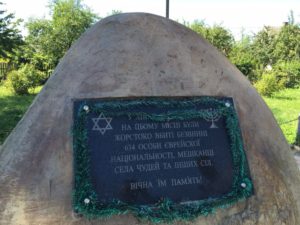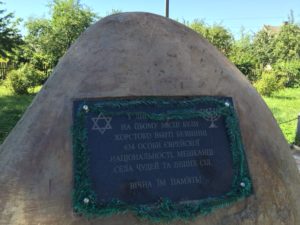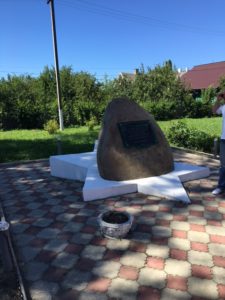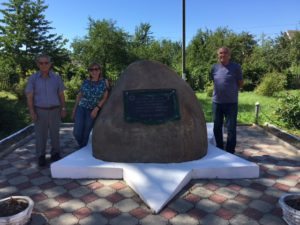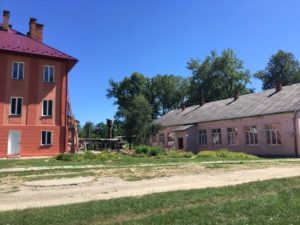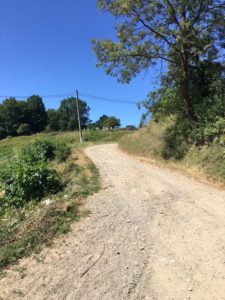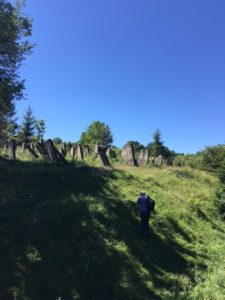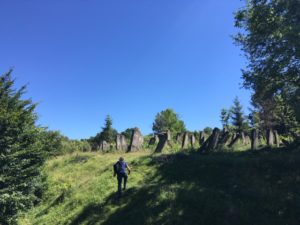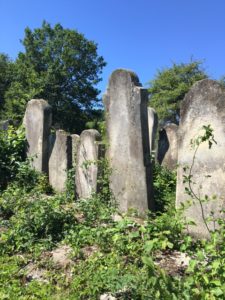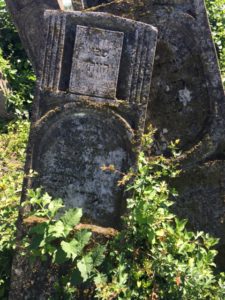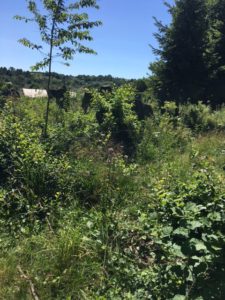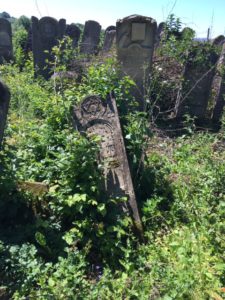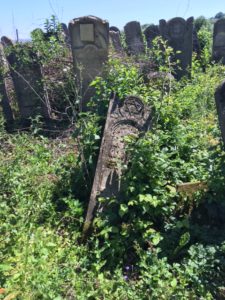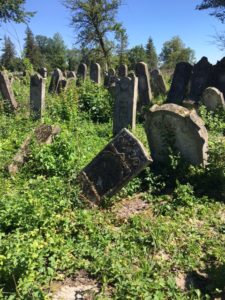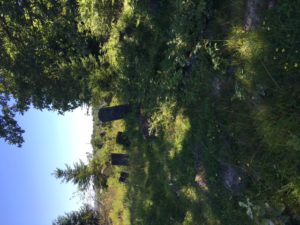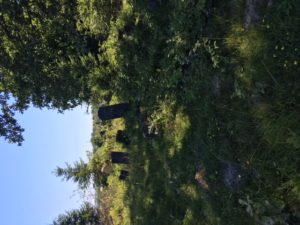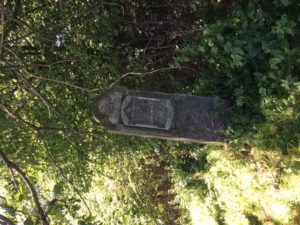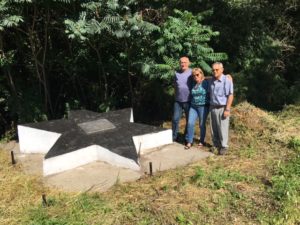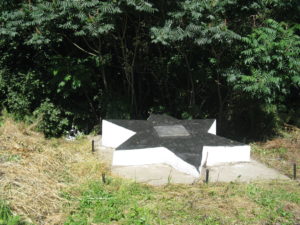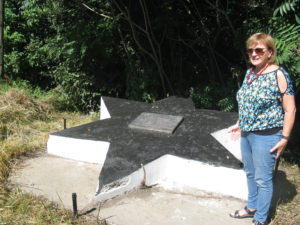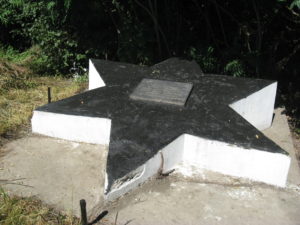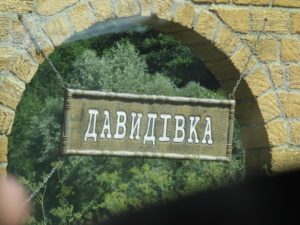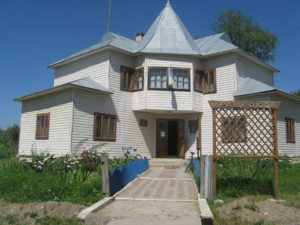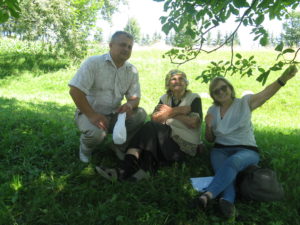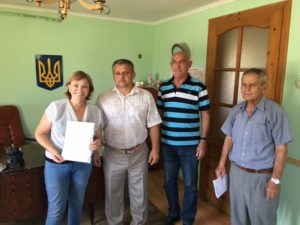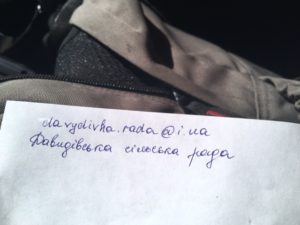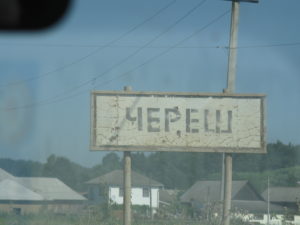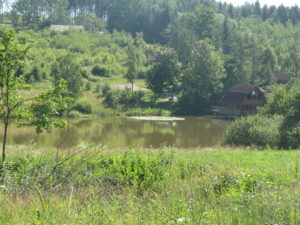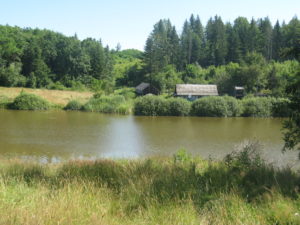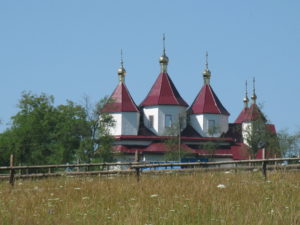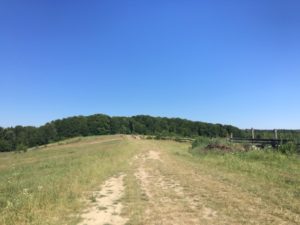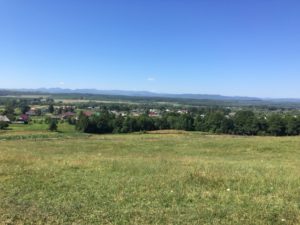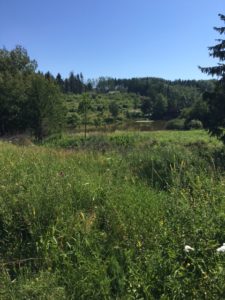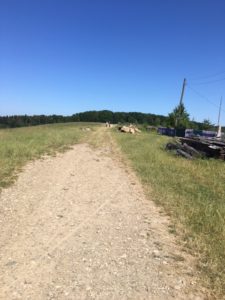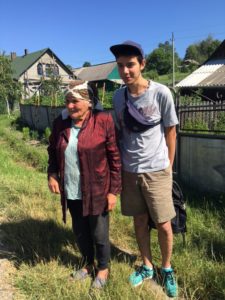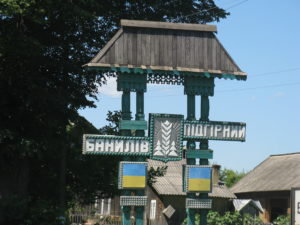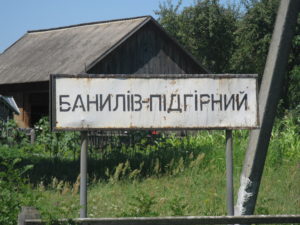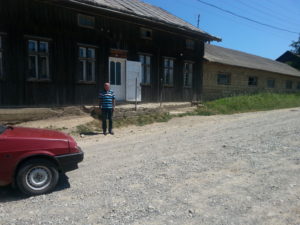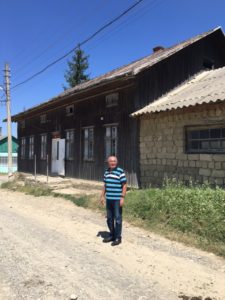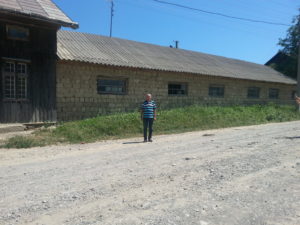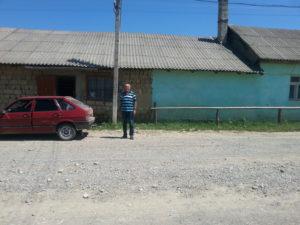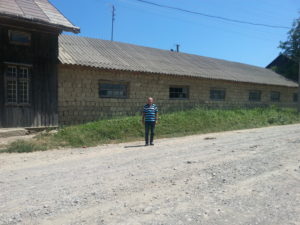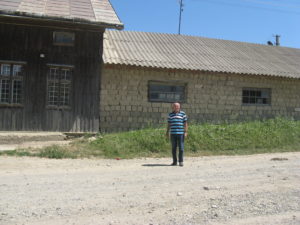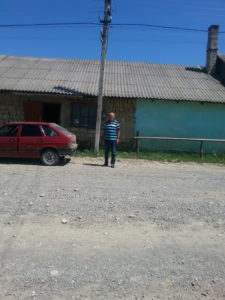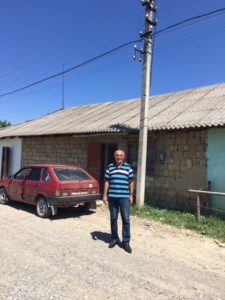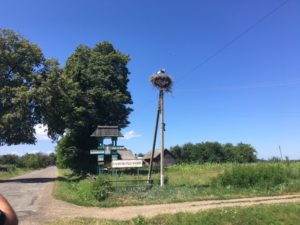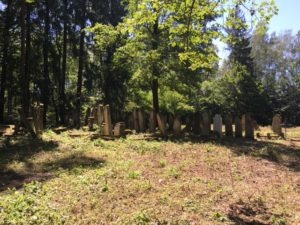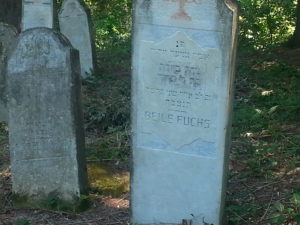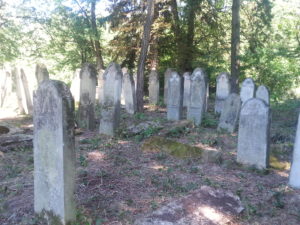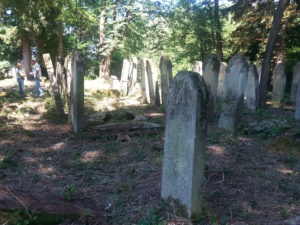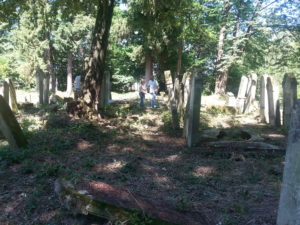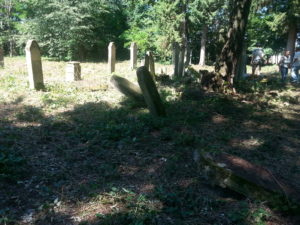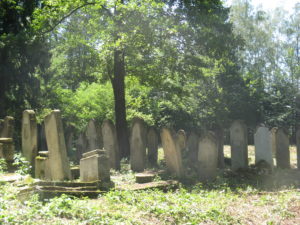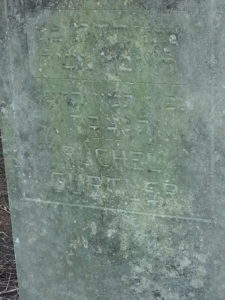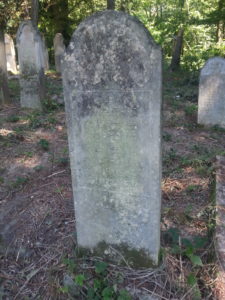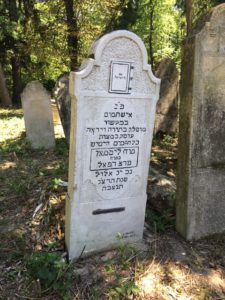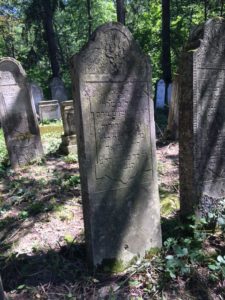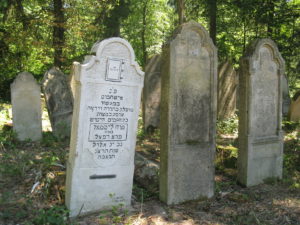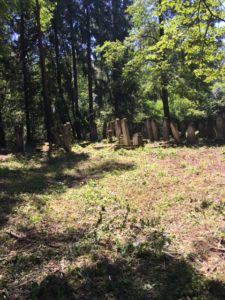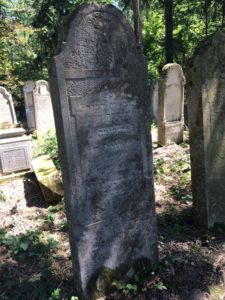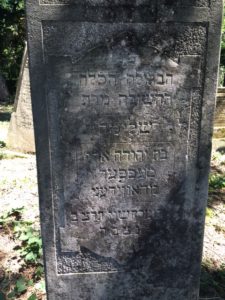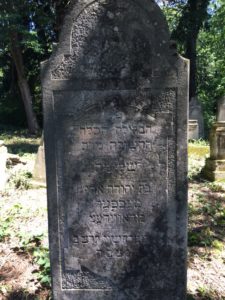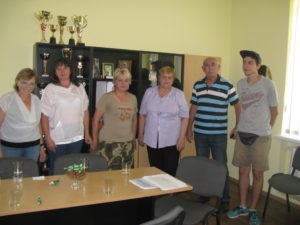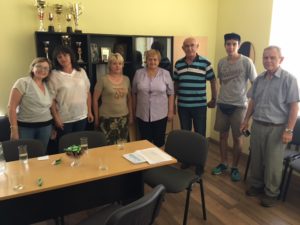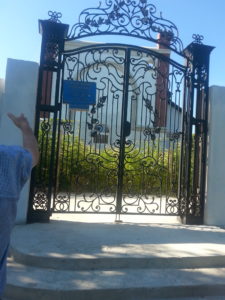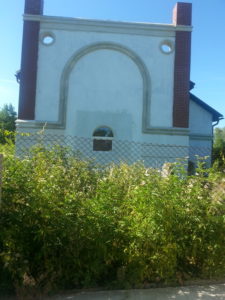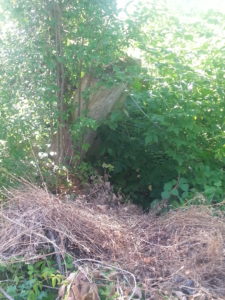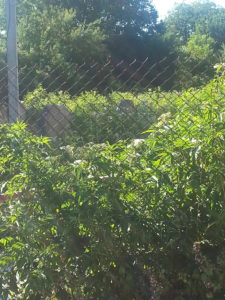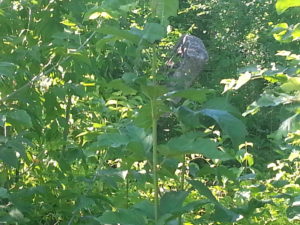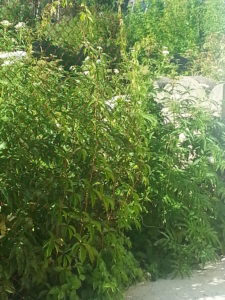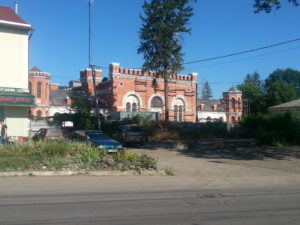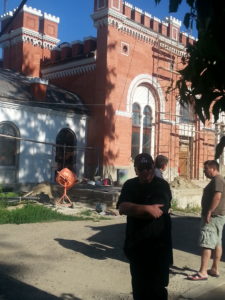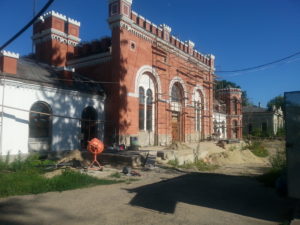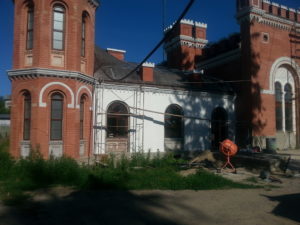The visit of the World Organization of Bukovina Jews to Stanesti de Jos in July 2016 motivated Mr. Irving Osterer from Ottawa, Canada to add additional relevant information about this heritage site.
First – here is a presentation about Stanesti. To see a short Stanesti de jos presentation that Irv created, please click on this link.
stanestie
Additional information about Stanesti will be posted separately by Carol Elias. She has visited Stanesti twice, and recently was able to find the melon farm in Transnistria where her family was sent after the July 1941 pogrom.
This post includes information from Madeleine Kahn, that has given her permission to publish the photos from her book – The credit for the photo is to her. THANKS!!
Her description of the town really gives you an idea of what life was like for Jewish people in the village.
She returned to Stanesti and Basilic is the book she wrote about her experience. She was told that the woman that abandonned her was no longer living in Stanesti. All the others that have been there, say that the locals seem unaware of the Jewish presence. There are no archives or photos to tell the story either.
Basilic written by Madeleine Kahn (Atlantica, Biarritz, 2011 ISBN : 978-2-7588-0399-7)
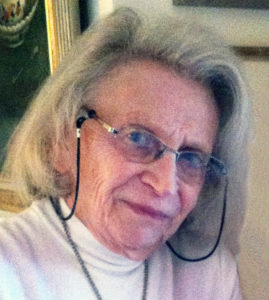
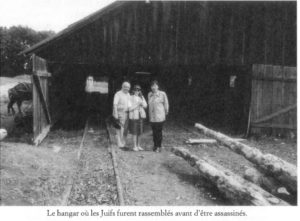
This photo, documenting one of the massacre locations in Stanesti de Jos, appears on page 148 of her book.
The author’s story is an amazing one. Madeleine Wolloch was born in France, the daughter of a Polish Jewish father and a Romanian Jewish mother. She spent summers with her grandmother in Stanesti de jos. Her vivid description of the town really gives one an idea of what life was like for Jewish people in the village.
She was only six years old when she was separated from her parents at the outbreak of World War 2 in 1939 and was a witness to the massacre of Stanestie’s Jewish men in July 1941. When it appeared that even the women and children were not to be spared, her grandmother appealed to her Ukrainian housekeeper to shelter her grandaughter. The housekeeper gave Madeleine refuge for one night, but the following day took her to the middle of a forest and left her there, alone. It is hard to imagine such cruelty. Madeleine spent a few nights alone in the forest before a sympathetic Romanian soldier found her and reunited her with her grandmother, her aunt and infant son. Many of the Jews in North Bukovina that survived the pogroms made their way to the Czernowitz ghetto only to be herded further east to labour camps in Transnistria. Her beloved grandmother perished there, but Madeleine’s French passport was her salvation and though very ill with typhus, she was placed in a convent and cared for by the nuns through the intervention of the French diplomatic corps in Galatz. After the war Madeleine returned to France, married and had a distinguished career as an academic with the Sorbonne.
She returned to Stanesti when the fall of communism made travel to the Ukraine possible with a French legation. Basilic is the book she wrote about her experience. Particularly poignant was a meeting she had with town officials in Nizhniye Stanovtsy. The Mayor of the town told her that no Jews were harmed there during the war. She was not shy about setting the record straight and even made an attempt to visit her grandmother’s house. She was told that the woman that abandoned her was no longer living in the area.
Mme. Kahn says that an English translation of her book is in the works. She now resides in Israel.
